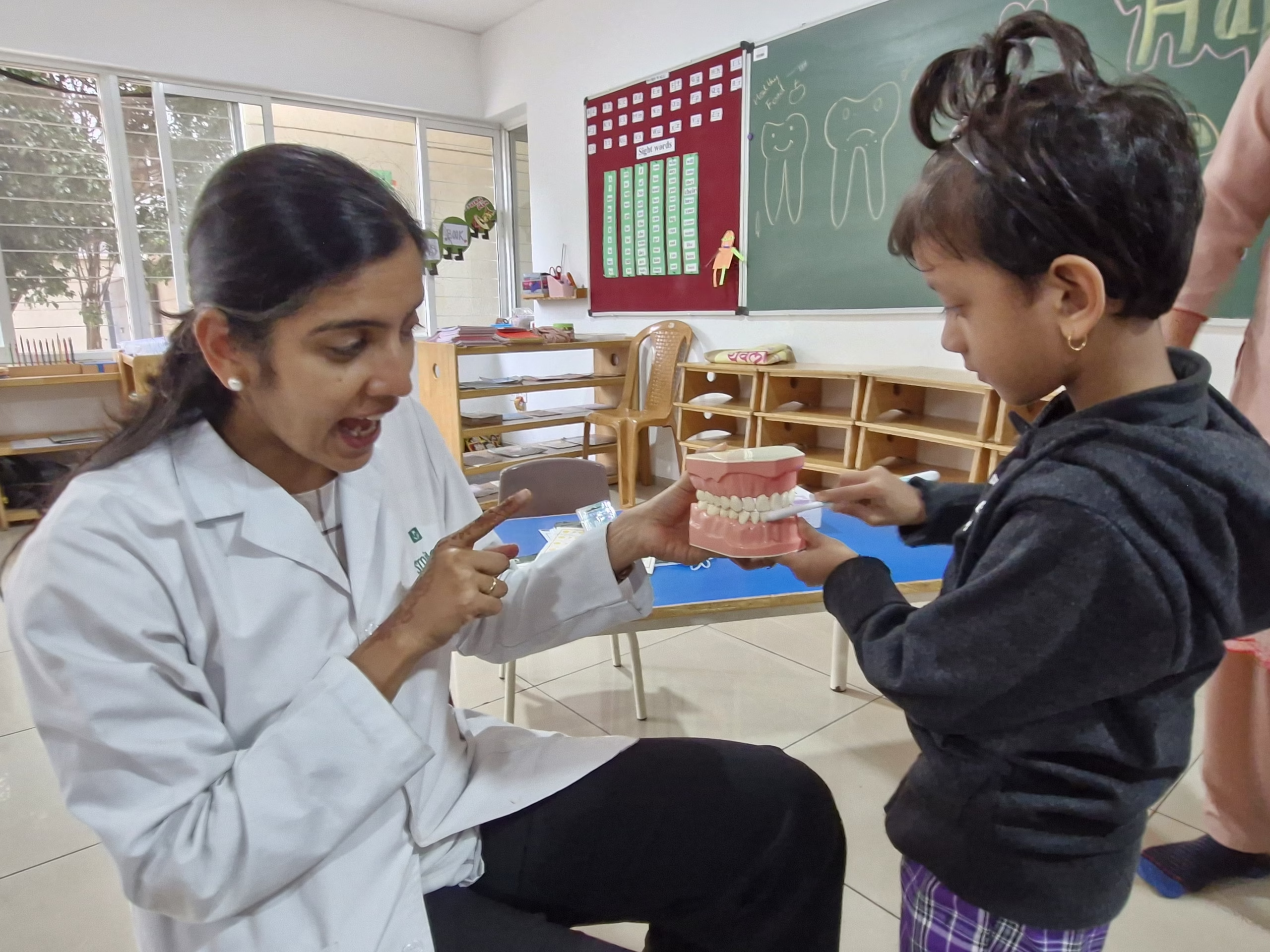In the formative years of childhood, establishing routines can be a game changer for young learners. At the best montessori schools in Bangalore, educators understand that positive habits not only foster academic success but also contribute to emotional and social development.
When children are equipped with the right routines, they learn to navigate their world with confidence and curiosity. Let’s take a closer look at effective routines that promote positive habits for young learners, focusing on the unique approaches adopted by Montessori schools while also considering insights applicable to other pre-schools in Bangalore and schools in Bangalore.

The Importance of Routines in Early Childhood Education
Routines provide a sense of security and predictability for young children. At Montessori schools in Bangalore, routines are thoughtfully crafted to align with the natural rhythms of a child’s day. This structure helps children develop essential life skills such as time management, self-discipline, and responsibility.
By participating in daily activities, children learn the importance of consistency. For example, having a designated time for activities like reading, art, or outdoor play helps children understand that learning can be both structured and enjoyable. This balance is vital at pre-schools in Bangalore, where young learners are introduced to foundational concepts that will serve them throughout their educational journey.
Creating a Positive Learning Environment
In Montessori schools, the learning environment is meticulously organised to encourage exploration and independence. When children have access to age-appropriate materials and activities, they are more likely to engage in meaningful learning experiences. Here are some ways to create a positive learning environment:
- Structured Daily Schedule: Establishing a clear daily schedule helps children understand what to expect throughout the day. This structure can include specific times for group activities, individual work, and breaks. For instance, a typical day in a Montessori classroom might start with a morning circle, followed by work periods where children can choose their activities.
- Choice and Autonomy: The Montessori philosophy gives children the freedom to choose their activities. This autonomy fosters a sense of ownership over their learning. When children can select tasks that interest them, they are more likely to stay engaged and develop intrinsic motivation.
- Encouraging Responsibility: Young learners thrive when they are given responsibilities that match their abilities. In Montessori schools, children might be tasked with caring for classroom plants, organising materials, or helping set up for activities. These small responsibilities help build their confidence and teach them the value of contributing to their community.
Establishing Positive Habits Through Consistency
Consistency is key when it comes to establishing positive habits. In schools in Bangalore, educators and parents can collaborate to reinforce routines both at school and at home. Here are some strategies to promote consistency:
- Morning and Evening Routines: Creating a predictable morning and evening routine can set the tone for a child’s day. Incorporating activities like reading together, discussing the day ahead, or reflecting on what they learned helps children transition smoothly between different parts of their day.
- Mindfulness and Reflection: Encouraging young learners to practice mindfulness can help them develop emotional regulation and self-awareness. Montessori schools often incorporate moments of silence or reflection into their routines. This practice allows children to tune into their feelings and thoughts, promoting a calm and focused mindset.
- Celebrating Small Successes: Recognising and celebrating milestones, no matter how small, reinforces positive habits. Whether it’s completing a challenging task or demonstrating kindness to a peer, acknowledging these moments boosts self-esteem and encourages children to continue developing positive behaviours.
Fostering Lifelong Learning Habits
In conclusion, establishing positive habits through routines is essential for young learners in Montessori schools in Bangalore. By creating structured, supportive environments that encourage exploration and autonomy, educators help children develop crucial skills that will serve them throughout their lives.
As parents and educators, we play a pivotal role in nurturing these habits by providing consistent routines, celebrating achievements, and fostering a love for learning. Whether at Montessori schools, other pre-schools in Bangalore, or any educational setting, the foundation we lay today will empower children to become confident, capable individuals prepared for the opportunities that lie ahead.
With the right routines in place, we can inspire young learners to embrace their curiosity and embark on a lifelong journey of discovery and growth!
